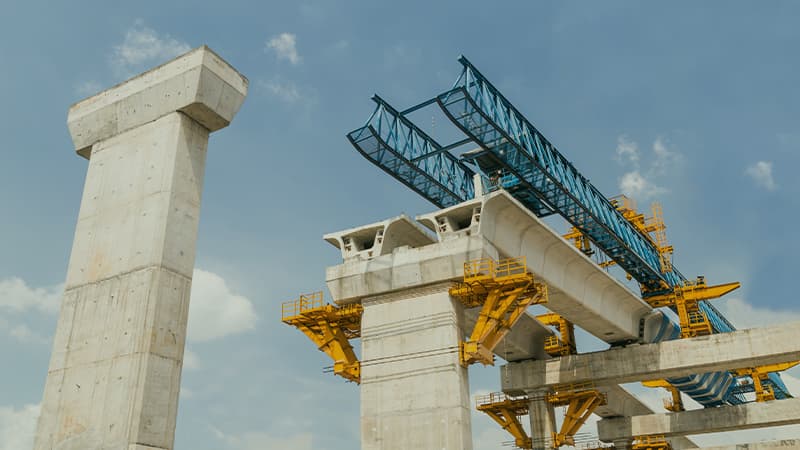December 2020
Talent Trends in Transportation Engineering

LVI Associates has partnered with a large number of clients in the transportation field this year as they have adapted their strategies and workplaces in unprecedented circumstances. We have also engaged in virtual events and discussions with leading industry associations such the Institute of Transportation Engineers (ITE) and the American Council of Engineering Companies (ACEC) to explore the most pressing topics in the industry. As we look ahead to 2021, there will be a number of hiring trends as firms adapt their recruitment plans, and define what the future looks like in terms of their businesses and workplaces.
Although the global pandemic has led to great uncertainty across the US, many engineering firms continue to grow and invest in their future. A big question we have been asked is: Has the pandemic made it easier to hire transportation talent? In general the answer is no, the transportation market across many states is so competitive that strong professional engineers, regardless of discipline, are difficult to attract and secure.
LVI Associates recently attended the ACEC Virtual Fall Conference, and a trend topic across the round table discussions was the remaining challenge of hiring top transportation talent. We have also seen companies become more open to acquisitions and joining forces, whether this be acquiring a firm in a new state to build their business, growing a new service line or expanding upon current services. We expect to see more of this happening over following months and years.
However, it isn’t all positive with a prime example being within the state of North Carolina. Though this can’t be fully pinned on Covid-19, the pandemic certainly made the funding situation worse for NCDOT. Within certain states, hiring has taken a hit and mostly remains for business-critical roles or strategic hires. LVI Associates have helped many companies in other states attract talent from North Carolina and explore relocation options for top candidates from the region. We expect relocation to continue as a key strategy for attracting talent in early 2021.
We have seen companies look to expand services that they offer to provide more stability in the firm. Examples include several firms in the state of Texas who are looking for CEI practice builders, and companies in the state of Georgia who are bringing on senior individuals that have strong backgrounds in TSM&O.
Additional trends include major advances in technology and the implementation of intelligent transportation systems, such as those seen by Audi who are deploying Cellular Vehicle-to-everything (C-V2X) communication with VDOT. There are also huge advances in the state of Florida with the City of Lakeland developing red light running technology to improve safety. We are seeing many firms looking to get ahead of the curve in this respect and are building ITS/ TSM&O groups to diversify their business for the future.
Another development we are interested in seeing pan out is how changes in travel patterns and an increase in remote working will change the focus of infrastructure development. With bike ridership exploding, in some cases even leading to bike shortages in New York and many other states, we may see a change in how DOT’s spend their budgets. With complete street projects and road diets being somewhat a rare occurrence in development, it will be interesting to see if this changes and if we see more projects focusing on Bike & Ped safety. Perhaps these developments will help cities tackle the issue of first-mile and last-mile to improve micro mobility. In the distant future, this may even lead to some US cities removing access to cars, similar to Barcelona’s 10- year plan to reclaim the city’s street from car traffic.
This year has seen a hot topic debated - will remote work continue, and will the engineering world become more open to staff working from home? Across the US we are starting to see this become an increasingly popular option. The LVI Associates team has also come across a client whose company is working fully remote, a situation previously unheard of prior to the pandemic.
From what we have seen, firms are moving away from the traditional mindset that you must be in the office for a specific period of time each day to be effective. A flexible workplace approach also opens up the talent pool that firms have access to. For example, firms can access transportation talent state-wide who may have relevant DOT connections, even if they aren’t based or working from the specific office location.
After what seemed an initial slowdown in productivity when remote working was first introduced at the start of the pandemic, companies have adapted accordingly and most are able to operate as effectively in the remote environment. Perhaps these circumstances have accelerated the adoption of flexible work in the transportation engineering world, but it will be interesting to see how this plays out over the next several years.
The LVI Associates team are experts in recruiting specialist transportation engineering talent across highway design, bridge design, traffic engineering, ITS/ TSM&O, CEI and transportation planning groups. If you are looking to grow a transportation team, please get in touch with the LVI Associates team today.
